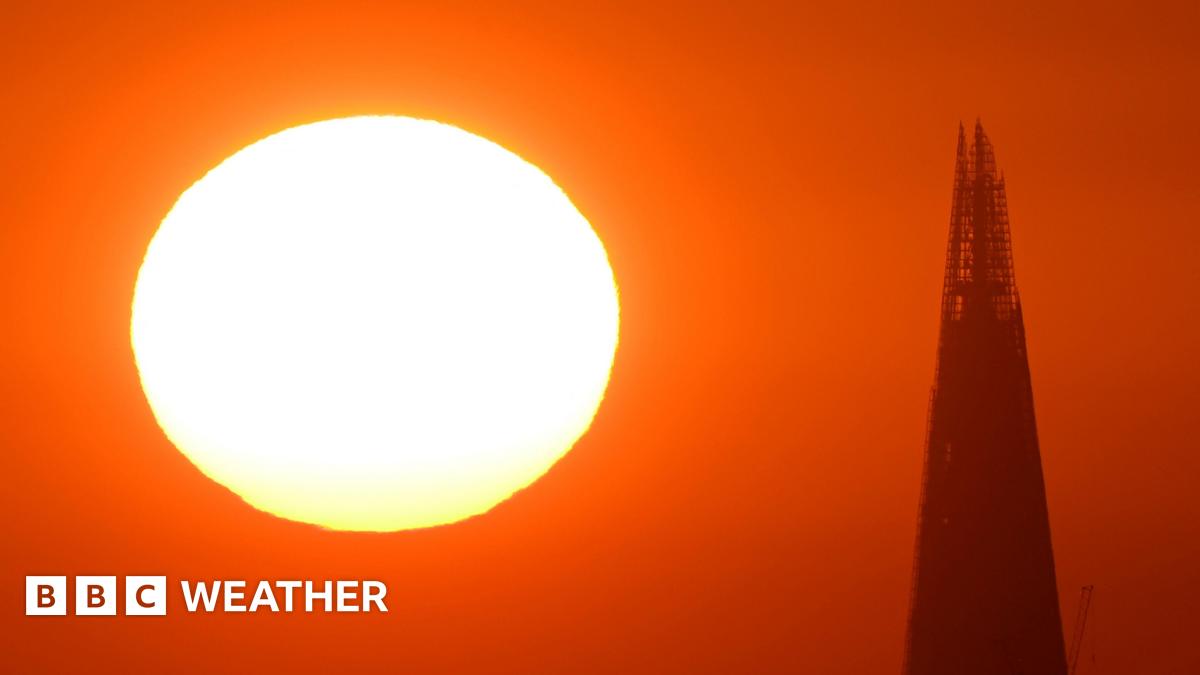UK City Heatwaves: Causes And Solutions To Extreme Temperatures

Welcome to your ultimate source for breaking news, trending updates, and in-depth stories from around the world. Whether it's politics, technology, entertainment, sports, or lifestyle, we bring you real-time updates that keep you informed and ahead of the curve.
Our team works tirelessly to ensure you never miss a moment. From the latest developments in global events to the most talked-about topics on social media, our news platform is designed to deliver accurate and timely information, all in one place.
Stay in the know and join thousands of readers who trust us for reliable, up-to-date content. Explore our expertly curated articles and dive deeper into the stories that matter to you. Visit Best Website now and be part of the conversation. Don't miss out on the headlines that shape our world!
Table of Contents
UK City Heatwaves: Causes and Solutions to Extreme Temperatures
The UK, traditionally known for its temperate climate, is increasingly experiencing extreme heatwaves, particularly in its major cities. These intense periods of high temperatures pose significant risks to public health, infrastructure, and the environment. Understanding the causes of these urban heat islands and exploring effective solutions is crucial for building more resilient and sustainable cities.
The Scorching Reality: Understanding Urban Heat Islands
Urban heat islands (UHIs) are a significant contributing factor to the severity of heatwaves in UK cities. These are areas where temperatures are noticeably higher than surrounding rural areas. This temperature difference can be as much as 10°C in some cases. Several factors contribute to this phenomenon:
- Lack of Green Spaces: Concrete, asphalt, and buildings absorb and retain significantly more heat than vegetation. The lack of trees, parks, and green spaces in many urban areas exacerbates the heat island effect.
- Building Density and Design: Tall buildings and dense urban development trap heat, reducing air circulation and increasing temperatures. Dark-colored building materials also absorb more heat than lighter ones.
- Industrial Activity and Transportation: Emissions from industrial processes and vehicles contribute to higher temperatures, particularly in densely populated areas with heavy traffic.
- Climate Change: The overarching cause is the global climate crisis. Rising global temperatures increase the frequency and intensity of heatwaves everywhere, including the UK.
Combating the Heat: Solutions for Cooler Cities
Addressing the issue of extreme temperatures in UK cities requires a multi-faceted approach, incorporating both immediate and long-term strategies:
1. Increasing Green Infrastructure:
- Planting more trees: Strategically planted trees provide shade, reduce surface temperatures, and improve air quality. [Link to a resource on urban forestry initiatives]
- Creating green roofs and walls: Green roofs and walls help to insulate buildings, reducing the amount of heat absorbed and released into the environment. [Link to a case study on successful green roof implementation]
- Developing more parks and green spaces: Expanding green spaces within cities provides respite from the heat and improves the overall quality of life.
2. Improving Building Design and Materials:
- Using lighter-colored materials: Buildings constructed with lighter-colored materials reflect more sunlight and absorb less heat.
- Improving building insulation: Better insulation reduces the amount of heat entering buildings, thus decreasing the need for air conditioning.
- Implementing green building standards: Encouraging the adoption of sustainable building practices, such as passive design principles, can significantly reduce the urban heat island effect.
3. Enhancing Urban Planning and Transportation:
- Promoting sustainable transportation: Encouraging walking, cycling, and the use of public transportation reduces emissions and improves air quality.
- Designing streets for better ventilation: Creating wider streets and incorporating features to enhance airflow can help to dissipate heat.
- Implementing cool pavement strategies: Using reflective or porous pavement materials can reduce surface temperatures significantly.
4. Public Health Measures:
- Heatwave warning systems: Effective early warning systems are crucial for protecting vulnerable populations during periods of extreme heat. [Link to the UK Met Office heatwave warnings]
- Public awareness campaigns: Educating the public about the risks of heatwaves and providing advice on how to stay safe is essential.
Conclusion: A Collaborative Effort for a Cooler Future
Mitigating the effects of urban heatwaves in the UK requires a collaborative effort from government, local authorities, businesses, and individuals. By implementing these strategies, we can create more resilient and sustainable cities that are better equipped to cope with the challenges of extreme temperatures brought on by climate change. The future of our cities depends on our collective commitment to a cooler, greener, and healthier urban environment. Let's work together to make a difference.

Thank you for visiting our website, your trusted source for the latest updates and in-depth coverage on UK City Heatwaves: Causes And Solutions To Extreme Temperatures. We're committed to keeping you informed with timely and accurate information to meet your curiosity and needs.
If you have any questions, suggestions, or feedback, we'd love to hear from you. Your insights are valuable to us and help us improve to serve you better. Feel free to reach out through our contact page.
Don't forget to bookmark our website and check back regularly for the latest headlines and trending topics. See you next time, and thank you for being part of our growing community!
Featured Posts
-
 Jake Paul Edges Out Julio Cesar Chavez Jr Secures 12 1 Record
Jul 01, 2025
Jake Paul Edges Out Julio Cesar Chavez Jr Secures 12 1 Record
Jul 01, 2025 -
 Crucial Weather Satellite Data Stream Halted By Defense Department What You Need To Know
Jul 01, 2025
Crucial Weather Satellite Data Stream Halted By Defense Department What You Need To Know
Jul 01, 2025 -
 Expert Predictions Wimbledon Day 1 Womens Singles Featuring Svitolina Vs Bondar
Jul 01, 2025
Expert Predictions Wimbledon Day 1 Womens Singles Featuring Svitolina Vs Bondar
Jul 01, 2025 -
 Mlb Free Agency Blue Jays Giants Cubs And Angels Vie For Post Ohtani Success
Jul 01, 2025
Mlb Free Agency Blue Jays Giants Cubs And Angels Vie For Post Ohtani Success
Jul 01, 2025 -
 Ilia Topuria Claims Ufc Championship With Oliveira Ko At Ufc 317
Jul 01, 2025
Ilia Topuria Claims Ufc Championship With Oliveira Ko At Ufc 317
Jul 01, 2025
